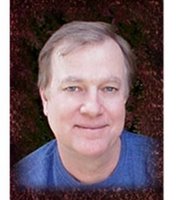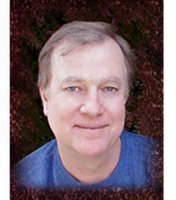 Youth ministry fund-raising banquets aren’t designed as showcases for musical talent—their purpose is to raise money to support the program. As director of the local Young Life program in Helena, Montana, I’d sung at a number of them, and I knew the routine: Provide about a half-hour of music and humor, be fast-paced and entertaining, sing some familiar songs, appeal to the audience’s emotions, and don’t forget to mention Young Life several times in positive ways.
Youth ministry fund-raising banquets aren’t designed as showcases for musical talent—their purpose is to raise money to support the program. As director of the local Young Life program in Helena, Montana, I’d sung at a number of them, and I knew the routine: Provide about a half-hour of music and humor, be fast-paced and entertaining, sing some familiar songs, appeal to the audience’s emotions, and don’t forget to mention Young Life several times in positive ways. This particular banquet happened to be in Bozeman, Montana, just a couple of hours down the highway from my home in Helena, but the plan would be the same. I’m a pretty fair guitar picker, but this wouldn’t be the time for flashy solos. I’d written some pretty challenging and unusual vocal numbers, too, but I would stick with the tried and true, and concentrate more on emotional connection than musicianship.
(Bear with me—there’s a point coming about fiction writing.)
The night of the banquet, I used two guitars so that I could use two different tunings. I still wince when I remember my joking explanation to the audience when I changed guitars that “when I play ‘em, they’re only good for a song or two before they get so hot I have to put ‘em down to cool off.” I sang a half-hour’s worth of rousing numbers that kept the audience laughing and clapping, and then I turned it over to the speaker.
After the banquet was over, the local Young Life director rushed past as I was putting my guitars away and stopped to shake my hand. “It was perfect!” he said. “Just what we needed. You couldn’t have done better.” He rushed on, but stopped several feet away and looked back at me. “Oh, by the way,” he said. “You know who Christopher Parkening is?”
Of course I did. Classical guitarist Christopher Parkening, who happened to live in the Bozeman area and taught a class at Montana State University, was in my opinion the finest living classical guitarist. He’d been a student of the legendary Andrés Segovia. I had a number of his albums. I nodded. “Sure,” I said.
“Well, he was here tonight,” Rich said. “He heard you play. Thanks again!” He waved and rushed off.
I caught him in two steps, my guitar still in my hand. “Did you just say what I thought you said? Christopher Parkening was here tonight? In the audience?”
Rich nodded happily. “Yeah! I think he pledged some money.”
“You knew he was going to be here?”
“He’d said he would come.”
“And you didn’t tell me?”
Rich shrugged. “Why would I do that?”
“Because I might have chosen a whole different set of material if I’d known he was going to be here!” I exploded. “I mean—it’s not as if I could have impressed him with my guitar playing, but at least I could have acted as if I respected his instrument. I was standing up there beating on it like it was a drum!”
Rich chuckled. “Come on, lighten up. I wouldn’t have wanted you to change your set. It was just right.”
I shook my head. He didn’t get it. “Look—at least point him out to me, okay? I can apologize to him for the disrespect.”
Rich shook his head. “I would, man, but he’s gone. He left early.”
“When?”
“Uh—I think right after you played.”
I threw my guitar cases into the car and hit the road, steaming at Rich and embarrassed at myself. How often in life does a workaday local musician like me get to play for someone of the international stature of a Christopher Parkening? And I’d blown it! I felt, frankly, humiliated.
So humiliated, in fact, that it didn’t occur to me until halfway through that late-night trip through the middle of nowhere to check the gas gauge. It said empty. I was a long way from any town. In fact, the only business I could think of that would be open that time of night on that remote stretch of Montana two-lane was a bar at the next river crossing. I drove with one eye on the road and one on the fuel gauge and prayed.
I pulled into the bar’s parking lot on fumes.
“No,” the bartender said. “No gas pumps around here. Except on ranches—hey, Manny! You got any gas out at your place?”
Manny, it turned out, had a gas pump at his ranch and would let me have a few gallons when he got good and ready to leave, which might be a while, judging from the amount of noise he and his pool-playing buddies were having. I bought a Coke and sat at the bar. And thought.
I relived my set, lamenting every song choice I’d made, every joke I’d told. Why was I playing for things like that? I was a better guitarist than this! I was a better songwriter! I had an album out, for pete’s sake! Maybe I needed to seek out some coffee shops, some university concerts, rather than this youth-ministry stuff. Places where I could play something I could be proud of…
And then I heard that familiar voice in my head. It said, “Well done, thou good and faithful servant.”
And I knew it wasn’t talking about my ideas for new places to play.
Nursing my Coke in that rowdy cowboy bar, I went through an attitude adjustment. Rich was right. The set I’d played had been the right set. Young Life was a strong ministry, and if my music could help them find the funds they needed to operate, then I should feel privileged. After all, my goal that night had not been to promote myself. If teenagers were drawn closer to God by the songs I sang at youth group meetings, why did I need the approval of Christopher Parkening or anyone else? I already had the approval of the one who mattered—and no need to feel ashamed of what I did on his behalf.
I’ve remembered that night often since then. I’ve remembered it when friends from grad school look down their noses at the Christian fiction I write and edit—“Why are you wasting your talents on that stuff?” I’ve remembered it when friends lament the poor reviews their Christian novels receive in the secular press. I’ve remembered it when, at writers’ conferences, I’ve met writers who were near tears because their only publications have been in their own church’s newsletters. I’ve remembered it at publishing trade shows when editors from New York houses ask what books I’ve edited that year, and their eyes glaze over at my answer. I’ve remembered it when I see the huge advances many novelists are getting for fiction that’s morally repugnant and downright embarrassing to read. And yes, I’ve even remembered it when Christians say, “I don’t read fiction. I only read true things.”
If you’re convinced that what you’re writing is what God wants you to write, if you can see a valid ministry and artistic rationale for the type of fiction you’re writing, then well done, thou good and faithful servant. You may not earn much money, and you may never become a household name. You may never show up on a bestseller list or sign an autograph.
Your reward is yet to come.
David Lambert is a novelist, freelance editor, musician, and author of the fiction curriculum offered by the Christian Writer's Guild.


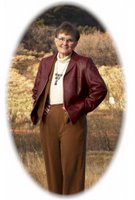



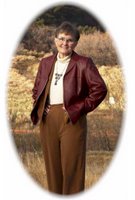 It could be the fog that rolls in along the Columbia River Basin where we live or it could be the temperature hovering around freezing each day or it could be that this is the month that my sister died eight years ago and she’s been on my mind. But I suspect it’s the passage, the nearing of the end of the year. My SAD light gets turned on more often and I try not to abuse myself with negative thoughts like “you’ll never have a NY Times bestseller you know,” or “you’ll always have to work this hard, even when you’re really, really old because if your ship does come in it’ll be investigated and the cargo likely marked ‘return to sender’ as the recipient is too decrepit to receive it.”
It could be the fog that rolls in along the Columbia River Basin where we live or it could be the temperature hovering around freezing each day or it could be that this is the month that my sister died eight years ago and she’s been on my mind. But I suspect it’s the passage, the nearing of the end of the year. My SAD light gets turned on more often and I try not to abuse myself with negative thoughts like “you’ll never have a NY Times bestseller you know,” or “you’ll always have to work this hard, even when you’re really, really old because if your ship does come in it’ll be investigated and the cargo likely marked ‘return to sender’ as the recipient is too decrepit to receive it.”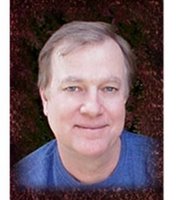




 What's stopping you from writing your novel?
What's stopping you from writing your novel? 